Menu
The learning on this page aims to meet the indicators set out under Level 1. If required, you may wish to visit the learning in other levels in order to address any gaps or if you wish to upgrade your learning. Please note that the learning below is not intended to be an exhaustive list since some of development of some of these indicators can be undertaken in your role. If you do feel that there are any gaps, please contact peopledevelopment@aberdeencity.gov.uk.
As you’ll see below, all learning/development is split into each of the five Guiding Principle headings and then under a skill-set.
After working through this page and the associated training, your development doesn’t need to stop there…
…we’d encourage you to seek out your own additional reading/development depending on your own needs.
There are four levels of the framework, which reflect the increasing levels of responsibility different people hold in the organisation. Once you know which level you are, select the correct page by clicking on the ‘Learning for Level … roles’ menu above.
Level 1 is for everyone – most employees who don’t lead people/projects etc. will be Level 1
Level 2 is for people with responsibility for leading people, projects or managing resources (like buildings, rotas, budgets etc)
Level 3 is for people who lead service delivery and / or manage managers
Level 4 is for leaders of the whole organisation (e.g. Chief Officers and Directors)
However, if you’re not sure which Capability Framework Level you are then Click Here to learn how to view this in your CR&D.
Guiding Principles: The five Guiding Principles are ‘Purpose’, ‘Pride’, ‘Team’, ‘Trust’ and ‘Value’ – These guide the way we work, the way we behave with each other and make sure we all have the same understanding of what it means to work here.
Capability Framework: The Capability Framework lists the skills, knowledge and behaviours that we need from every single employee (in addition to your job specific skills and knowledge). The Capability Framework skills/knowledge/behaviours are split up into four levels (1 for many non-managerial employees up to 4 for Chief Officials). All of the skills/knowledge/behaviours in each of the four levels are displayed on these pages by the relevant Guiding Principle heading. So regardless of where you work in the Council, once you know which ‘Level’ your post is then you’ll need to understand the contents on that page (this page contains all of the Capability Framework information for L1 posts).
Continuous Review & Development: Part of the CR&D process is to measure how well you have learned each of the skills/knowledge/behaviours relevant to your roles’ level. So if for example you are in a Level 1 role then you’ll need to review and understand all the information available on/via this page.
“We care about our purpose, our city and our people”
Capability Framework Level 1 ‘Purpose’
To achieve this effectively each of us needs to:
Understand our purpose and direction so that we’re clear what we’re trying to achieve and can focus our priorities on achieving that purpose
Understand and manage demand – know where the demand on our services’ time and resources comes from and think about how best to manage this demand so we make best use of our resources
Take a customer-centric approach which puts our customers at the heart of what we do
Guiding Principle ‘Purpose’ (+ & -)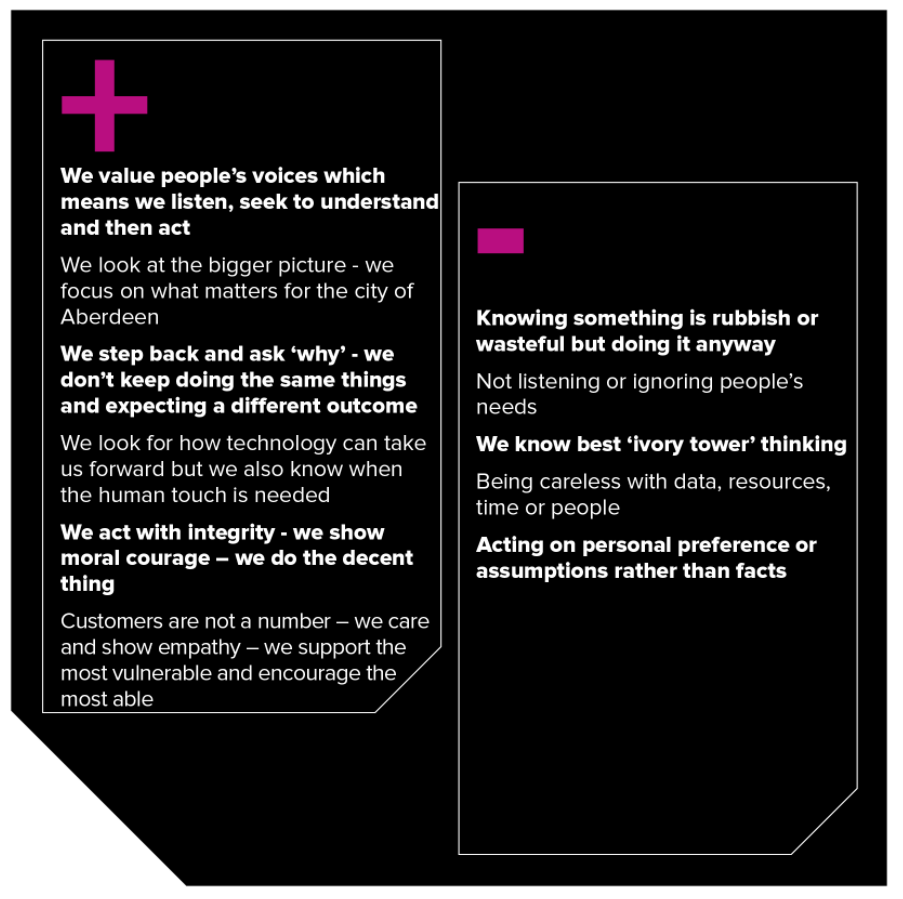
Core Learning to achieve skill set
The following section will help you to meet the following indicators under this skill set:
Our purpose as a Council
What an outcome is
Our responsibility for improving outcomes for the people of Aberdeen and how my role contributes to this
Support others to understand our purpose
Core Reading
In essence, our purpose as a council can be summed up as ‘to make sure the people, place and economy of Aberdeen prosper and to protect the people, place and economy from harm’. We share a common purpose not just in the Council but also with our Community Planning Partners. The shared purpose is set out in the Local Outcome Improvement Plan (LOIP).
Prosperity isn’t always financial, it’s also about wellbeing. And the flip side of prosperity is harm. As a Council, we play a key role as a first responder in cases of emergency in the city as well as our ongoing role in protecting children and adults, investment and infrastructure.
Our future direction and priorities are set out in the Council Delivery Plan which covers the specific actions and targets within set timescales in order to achieve our outcomes.
Every one of us has a responsibility for delivering the best outcomes for the people of Aberdeen. That is what we are employed to do. Outcomes are simply the end result of our actions. It’s important that all of us are able to see how our actions produce a good end result for our city – whether that’s in helping Aberdeen to prosper or protecting it from harm.
If you’re in a front facing role you should be able to see directly how your actions contribute to our economy, our people or the place of Aberdeen. For example, through the work we do in schools and social work; bringing events to the city; keeping our streets clean and making our parks and gardens a pleasure for visitors. For those in supporting roles it may be more about how you provide the financial, administrative or people support which allows others to directly deliver our outcomes.
Learning upgrade
Here is an additional set of resource in order for you to dig deeper into the topics covered above and expand on your learning.
Moving the Council forward with purpose – Chief Executive’s blog
Our transformation journey
Team Purpose
Council Delivery Plan 2020-21
Local Outcome Improvement Plan
Corporate Induction (Welcome to the Council of the Future!) – coming soon
Core Learning to achieve skill set
The following section will help you to meet the following indicators under this skill set:
What is meant by customer demand and what it means to the people of Aberdeen and how my role contributes to this
How the service I deliver meets customer demand
What prevention and early intervention means
Guide and signpost customers to support for self-help and self-serve where appropriate
Core Reading
Demand is the result of people turning to the council to fulfil a need. That need could vary from very simple – such as the need to report a fault or pay a council tax bill – to long term complex needs such as dealing with homelessness or taking a child into care.
Dealing with demand costs time and money. It uses up resources. These resources are reducing at the same time as the pressures on the Council are rising owing to factors such as more people accessing public services due to people living longer. So, we need to think carefully about how we manage the demand on our services to make sure we’re focusing our resources where they’re really needed. While much of our demand is valid and necessary, we’ve identified 5 types of demand which are not:
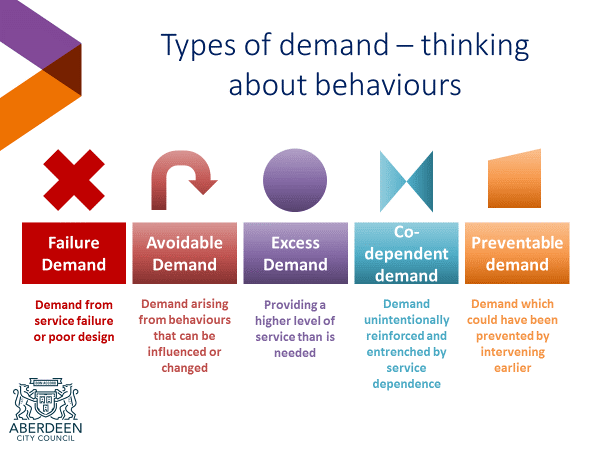
As a Council, we’re taking a deliberate and systematic approach to understand our demand and analyse what we spend- looking specifically at where we face the most pressure from demand. As part of planning for 2020-21 and beyond, we’re undertaking a Council-wide analysis of demand – including how much we spend across all services, what demand drives that spend and how this could be reduced, removed or managed better.
We need the whole organisation to think about demand management and how we can remove negative demand from the system. You know your own service and what creates demand for you, so think about how the following might apply in your own area:
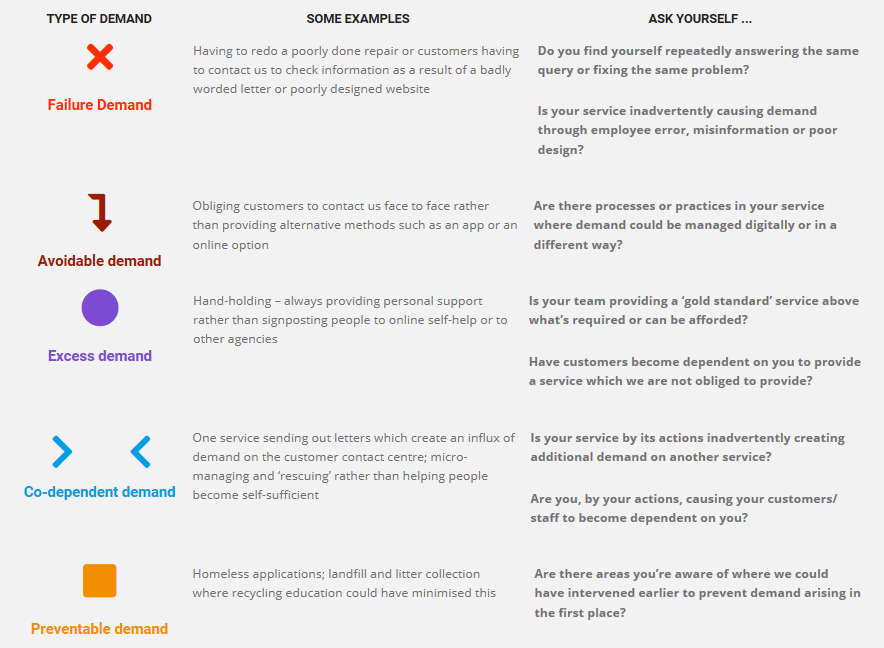 Managing demand through prevention and early intervention is about identifying where early action can reduce harm as well as offering customers increased opportunities for self-service when accessing Council services.
Managing demand through prevention and early intervention is about identifying where early action can reduce harm as well as offering customers increased opportunities for self-service when accessing Council services.
Learning upgrade
Here is an additional set of resource in order for you to dig deeper into the topics covered above and expand on your learning.
Core Learning to achieve skill set
The section will help you to meet the following indicators under this skill set:
Who my customers are
How to identify opportunities for customers to self-help and self-serve
Listen to my customers and understand their needs
Ask “why” questions to get to the root of customers’ problems or issues
Interact effectively with customers showing empathy and understanding
Core Reading
In your day to day work, your customers are the people you deliver your service to – whether that’s internal colleagues or members of the public. If you extend this thinking outwards and look at the organisation’s perspective, our customers are the people and place of Aberdeen, which includes local business, tourists and visitors to the city – the range of services we deliver are complex and far reaching and we touch the lives of everyone who lives in, travel through and visits Aberdeen every day.
As well as delivering the best services we can to the people of Aberdeen, we ultimately want to empower individuals and communities to be self-supporting and less reliant on old ways of being helped. To do this meaningfully and ethically in the spirit of the Community Empowerment (Scotland) Act, all services need to mindfully and deliberately think about how our customers can be involved in creating improvements with us.
Core online courses
Click here to learn how to access these courses on ‘ACC Learn’
Listening Skills
Finding the right words
Plain English
Effective Questioning
Speaking without words – the art of body language
More than words – paralanguage
Core workshops
Learning upgrade
Here is an additional set of resource in order for you to dig deeper into the topics covered above and expand on your learning.
“We take pride in what we do and work to make things better”
Capability Framework Level 1 ‘Pride’
To achieve this effectively each of us needs to:
Play an active part in transformation, change and improvement – being comfortable with change and focusing on improvement
Play our part in digital transformation by being comfortable with technology, looking for ways technology can help us deliver better services and acting on sound evidence and information
Adopt a commissioning approach by taking responsibility for making sure public money is spent wisely on what is going to deliver the best outcomes for Aberdeen
Guiding Principle ‘Pride’ (+ & -)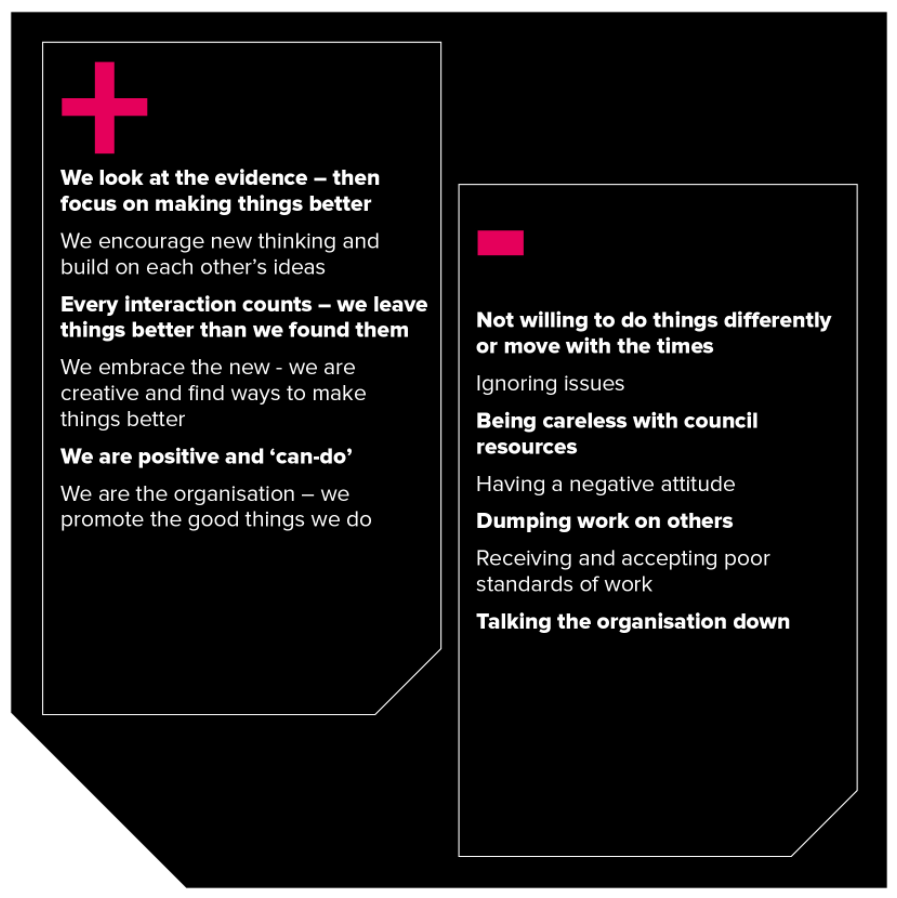
Core Learning to achieve skill set
The following section will help you to meet the following indicators under this skill set:
How I, and others, may respond to change and how I might offer support
What impacts on my personal resilience
My responsibility to seek opportunities to improve and change
Support others to put in place changes that affect them
Discuss concerns in a positive and constructive manner
Contribute ideas on changing the way things are done, for the benefit of customers and colleagues
Highlight where a process can be made more efficient
Listen and be open to other’s ideas about how things might be done differently
Remain flexible when different approaches and methods are required to achieve team outcomes
Be open to learning new skills to develop myself and the services I deliver
Be willing to test new ideas which will improve outcomes for customers
Core Reading
Change can affect all of us in two ways – while we’re reacting to the bigger changes which are happening around us in the organisation we are also responsible for making smaller changes and improvements in our own area of work.
Some of us might find the scale of change that is taking place unsettling. So it’s important that we’re all equipped to feel comfortable with what’s happening. At the same time, we all have a responsibility for making improvements which are in our own area of responsibility. Some of us might also be part of bigger improvement projects.
Core Articles
Core online courses
Listening skills – ACC Learn – Click here to learn how to access ‘ACC Learn’
Finding the right words – ACC learn – Click here to learn how to access ‘ACC Learn’
Building resilience in times of change – what individuals and organisations can do to avoid stress (Webinar)
Understanding and building resilience – brochure to help readers take their own road to resilience
Developing resilience – online tips and tools to manage stress
Tools to build resilience – online blog
Learning upgrade
Here is an additional set of resource in order for you to dig deeper into the topics covered above and expand on your learning.
Core Learning to achieve skill set
The following section will help you to meet the following indicators under this skill set:
How technology can be used to improve outcomes for customers and reduce costs
The importance of digital safety and how to protect myself and others online
The implications of storing and sharing information digitally
Use the technology required in my role and embrace new digital technology and digital solutions
Adopt a range of smarter, mobile and flexible working options available
Protect myself and others online
Store information digitally or online where possible
Core Reading
With Office 365 comes powerful applications such as SharePoint and Teams Sites which give all of us the ability and opportunity to share documents and work more collaboratively with colleagues across the council and beyond. This means that how we store and share information digitally will also change.
While it might sound like online, cloud based working means we can save/store as much data as we want – the reality is that we all still need to be mindful of what we save and where we save it because as an organisation, our storage space is finite and we pay for what we use.
We will no longer need to share documents over email, resulting in multiple copies and versions of the same document floating around and being saved in various places. Saving something once to Teams Sites on Office365 means you can readily and easily access and share the document with those that need to see it for collaboration, comment or simply for information.
Whilst enjoying all the new features we will have at our disposal; it does come with a bit of a warning attached. The ease of sharing data means we all need to be really mindful of GDPR (General Data Protection Regulation) when sharing documents for collaboration; to ensure personal and sensitive information is protected and that information is only stored and retained for the legal length of time permitted. The consequences of a data breach can mean a large fine for the organisation or even legal action for the individual who caused the breach.
Be aware of phishing emails and phone calls; just as you would in your personal life. If you’re familiar with online banking, the rules are the same – there is never a need for anyone to know your password, so don’t give it out. The same is true for allowing colleagues to access your device in your absence.
Core online courses
Information governance – ACC Learn – Click here to learn how to access ‘ACC Learn’
Smarter working Aberdeen – ACC Learn – Click here to learn how to access ‘ACC Learn’
Getting started with Microsoft Teams
Learning upgrade
Here is an additional set of resource in order for you to dig deeper into the topics covered above and expand on your learning.
Core Learning to achieve skill set
The section will help you to meet the following indicators under this skill set:
The Council’s duty to demonstrate best value
I can challenge how money is spent
Treat council money and resources with respect and always seeks best value
Core Reading
The council is publicly funded. Basically, we are spending taxpayers’ money. As such we have a moral and legal obligation to make sure we’re spending that money wisely and to get value for money. This legal obligation is set out in the Local Government Scotland Act 2003 where councils are charged with always seeking ‘best value’. The best value audit is a wide and comprehensive review of how we manage all our resources and to ensure that it is managed effectively.
The responsibility for spending money wisely is particularly important when we are facing the scale of decrease in public funding we have experienced in recent years. The traditional approach to such challenges would have been to look at what we currently deliver and try to find ways to deliver this more efficiently or at lower cost. However, inevitably a point is reached where there is no more fat to trim, no more low hanging fruit, and trying to continue to deliver the services we currently deliver in the way we currently deliver them simply becomes unsustainable.
Although commissioning may sound like something quite high level which most of us will never get involved, at its most basic – the need to spend public money wisely – it is everyone’s responsibility. All of us should be challenging where we see money is being mis-spent or could be spent better and taking responsibility for treating money and resources with respect.
Core online courses
Finding the right words – ACC learn – Click here to learn how to access ‘ACC Learn’
Effective Questioning – ACC learn – Click here to learn how to access ‘ACC Learn’
Learning upgrade
Here is an additional resource in order for you to dig deeper into the topics covered above and expand on your learning.
“One team, one council, one city”
Capability Framework Level 1 ‘Team’
To act effectively as one team each of us needs to:
Work collaboratively with colleagues, other teams, across the council and with partners
Support each other’s health, safety and wellbeing
Look for opportunities to share and make best use of all our assets, resources and data
Guiding Principle ‘Team’ (+ & -)
Core Learning to achieve skill set
The following section will help you to meet the following indicators under this skill set:
The different communication tools available to me in my role
How my work fits into the bigger picture of how the organisation operates
How my work affects the work of others
The role of trade unions
I can use the most appropriate communication tool available to me
Work collaboratively with colleagues and customers
Seek the opinions of others and work as a team
Core Reading
Everything we do at work, from decisions we make to changes we introduce – within our own role or the wider organisation – connects to, impacts on or is dependent on other individuals, teams and services. Whether you call this a chain or a process or a system, everything we do is connected to how the council operates and contributes to achieving our purpose of making Aberdeen, a place where people prosper. It’s therefore crucial to work with other people who are part of the chain to achieve their outcomes.
Working in this way recognises that one person, team or organisation doesn’t have all the answers. Involving a wider group of people who also have a stake in what’s to be achieved, gives wider perspectives, deeper insights and more ideas which result in better solutions and decisions. Collaborative working also helps generate efficiencies and make better use of resources.
Each of us has a role to play in working collaboratively. All our work is inter-connected. Understanding how the work you and your team does connects to and impacts on other parts of the business is fundamental to working collaboratively. It’s also important to keep up to date with what’s happening elsewhere locally or nationally in our own area of work.
The range of communication methods we have available to us helps make collaborative working easier – for example information can be shared through the intranet, we can consult with people through Citizen Voice and new tools available through Office 365, such as Teams and Sharepoint, allow for greater digital sharing and collaboration.
It’s easy to see something that needs fixing in our own area of work and make the fix then wonder why other folk complain or don’t do what’s asked. We all have a responsibility for thinking about how our decisions and actions might affect others in our team and other parts of the organisation and for seeking the opinions of and involving those who might be affected so that a solution can be found that works for everybody.
Aberdeen City Council recognises the importance of Trade Union membership for negotiating purposes, ensuring that good employee relations are maintained and raising safety concerns with management. They also have the right to collectively bargain on behalf of their members, through direct negotiations and consultation with the Council. If required, you can choose to be accompanied by a trade union representative as part of certain policies such as:
Managing Performance
Supporting Attendance and Wellbeing
Bullying and Harassment
Managing Discipline
Managing Grievances
Some trade unions also offer training, welfare support, financial advice and undertake site visits.
The recognised trade unions are:
Non-Teaching Teaching
GMB SSTA
UCATT EIS
Unison SLS
Unite NASUWT
AHDS
Core online courses
How to collaborate successfully
Collaboration and Meeting etiquettes webinar
Listening Skills – ACC Learn – Click here to learn how to access ‘ACC Learn’
Effective questioning – ACC Learn – Click here to learn how to access ‘ACC Learn’
Learning upgrade
Here is an additional set of resource in order for you to dig deeper into the topics covered above and expand on your learning.
Joining a trade union
Communicating Effectively – quick guide
Core Learning to achieve skill set
The following section will help you to meet the following indicators under this skill set:
The impact my actions may have on the resilience and wellbeing of others
Take responsibility for the well-being of myself and others and be confident to ask if someone is OK
Core Reading
Supporting health and well-being starts with self.
Crucially it’s about being aware of how your own behaviour and actions might affect the resilience and well-being of others. It’s so easy to come into work in a bad mood because you were caught in traffic or have just had some news that’s making you irritable. We all have negative feelings and it’s good to acknowledge that this is a normal part of being human – we can’t be positive all of the time. It’s what we do with those negative feelings that’s important.
If we’re not aware of our emotions, we might inadvertently treat a colleague badly by the way we speak to them or word an email. Passing on our moods is usually not intentional but it’s easily done and the impact it has is to bring the other person’s resilience down.
You might remember hearing “sticks and stones may break my bones, but names can never hurt me”. Neuroscience has uncovered the uncomfortable truth about this childhood rhyme. Numerous studies reveal that the pain receptors that kick in when you stub your toe, jam your finger or otherwise injure yourself physically are the same ones which activate when you hear hurtful words. So being conscious of what we say and how we say it could make the difference to someone having a good day, a great day or simply want to curl up in a ball and hibernate.
Core Learning
Personal Impact with Confidence (Workshop)
Effective questioning – ACC Learn – Click here to learn how to access ‘ACC Learn’
Listening Skills – ACC Learn – Click here to learn how to access ‘ACC Learn’
Learning upgrade
Here is an additional set of resource in order for you to dig deeper into the topics covered above and expand on your learning.
Effective conversations webinar
Mental Health awareness video (Part 1)– What is mental health? Causes, effects and impact, what is Stress? Resilience and understanding anxiety and depression
Proactive approach video (Part 2) – Listening skills, Resources
Self help video (Part 3) – Help to deal with stress, anxiety and depression
Ask Tell – Look after your mental health – Part 1 – ACC Learn – Click here to learn how to access ‘ACC Learn’
Ask Tell – have a healthy conversation – Part 2 – ACC Learn – Click here to learn how to access ‘ACC Learn’
Ask Tell – save a life – Part 3 – ACC Learn – Click here to learn how to access ‘ACC Learn’
Emotional Health
Core Learning to achieve skill set
The section will help you to meet the following indicators under this skill set:
Where to access shared data and information to allow me to carry out my role and responsibilities
Where and how to find information about the Council and my employment
The importance of collecting and recording information accurately
Keep myself and others informed and up to date within the area of my work
Appropriately share knowledge and information with others to achieve outcomes
Gather, accurately record and use the information needed to meet customers’ needs
Core Reading
Each of us has a responsibility to know where to find the information we need at work, to keep our knowledge and skills up to date and to share that knowledge with others. The People Anytime
page provides you with information about your employment and Council’s website contains information about Council’s business.
We also have a responsibility for making sure the data we gather and record is accurate and up to date. If not our decision-making will be flawed.
Core training
Information Governance Training – ACC Learn – Click here to learn how to access ‘ACC Learn’
“We trust each other and take responsibility”
Capability Framework Level 1 ‘Trust’
To do this effectively each of us needs to:
Understand the importance of distributed leadership – recognising we can all be leaders wherever we are in the organisation
Take responsibility and hold ourselves and others to account for what we’ve said we’ll do
Manage risk
Make sure we comply with legislation and procedures
Guiding Principle ‘Trust’ (+ & -)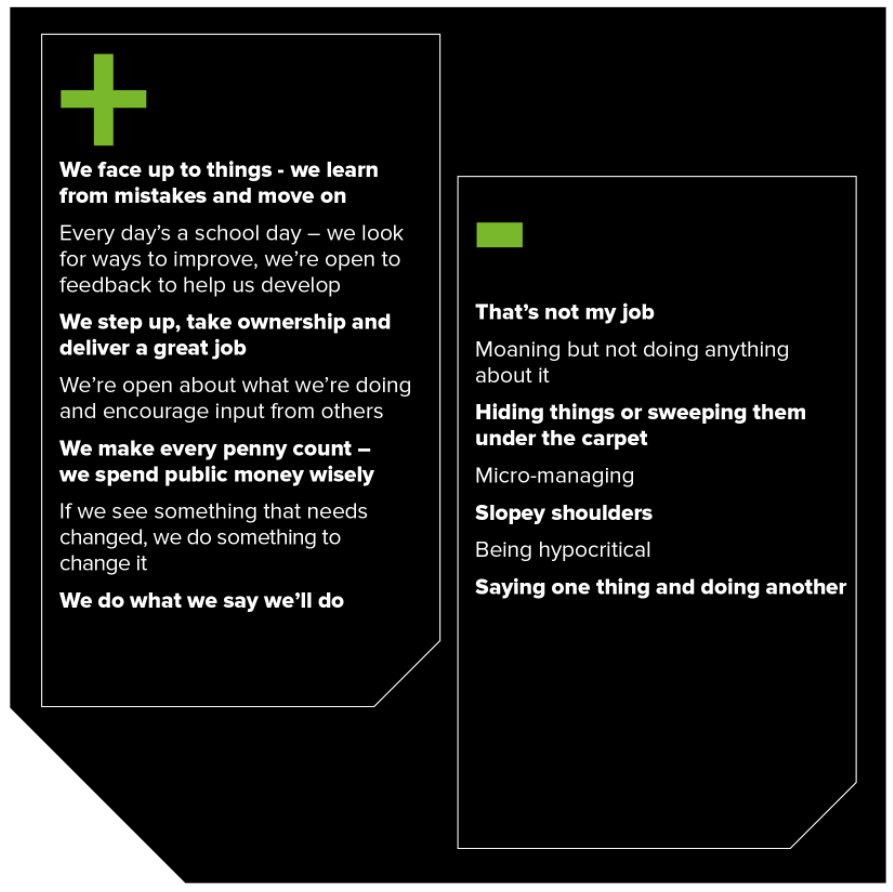
Core Learning to achieve skill set
The following section will help you to meet the following indicators under this skill set:
Where and how I can make my voice heard
Join debate and discussion on issues that affect me and my work
Core Reading
Distributed leadership should lead to a more satisfying way of working for all of us but it needs us all to be willing to take on that new way of working – to take responsibility, to find our voice and join in the debate about things that affect us, whether that’s at 1:1s, team meetings or through the opportunities that regularly arise to join groups across the council such as becoming a customer service or digital champion.
Core training
Personal Impact with Confidence (Workshop)
Core online courses
Finding the right words – ACC Learn – Click here to learn how to access ‘ACC Learn’
Learning upgrade
Here is an additional resource in order for you to dig deeper into the topics covered above and expand on your learning.
Core Learning to achieve skill set
The following section will help you to meet the following indicators under this skill set:
Continuous Review and Development and my own personal objectives in this
My development needs
Plan and prioritise my work to meet deadlines and deliver on outcomes
Core Reading
Continuous Review and Development (CR&D) sets out what each of us is accountable for:
Developing ourselves against the skills and knowledge in the Capability Framework (all learning on this People Anytime page)
Acting in line with the Guiding Principles
Delivering our objectives as part of CR&D
We’re all accountable for our own performance in each of these areas and for keeping our manager up to date with our progress on these through regular catch-ups and through CoreHR.
Core Learning
Time Management – ACC Learn – Click here to learn how to access ‘ACC Learn’
All about CR&D and best practice
Learning upgrade
Here is an additional set of resource in order for you to dig deeper into the topics covered above and expand on your learning.
Core Learning to achieve skill set
The section will help you to meet the following indicators under this skill set:
How to raise concerns about issues that may put colleagues or customers at risk
Work in a healthy and safe manner
Maintain confidentiality
Core Reading
Although the organisation has safeguards in place to protect it, it is people who carry out the day to day actions associated with risk. We all have a responsibility for managing risk in our area of work. That means making sure we work in a safe and legal way, protecting the council’s resources (data, money and property) and protecting the council’s reputation. We also have a responsibility for raising concerns and issues that might put colleagues or customers at risk. Risk management is everyone’s responsibility and the Employee Code of Conduct sets out how we expect employees to behave in order to reduce risk to themselves and to the organisation.
Core training
Finding the right words – ACC Learn – Click here to learn how to access ‘ACC Learn’
Personal Impact with Confidence (Workshop)
Why it is important to maintain confidentiality in the workplace
An introduction to health and safety – ACC Learn – Click here to learn how to access ‘ACC Learn’
Learning upgrade
Here is an additional set of resource in order for you to dig deeper into the topics covered above and expand on your learning.
Communicating Effectively – quick guide
Core Learning to achieve skill set
The section will help you to meet the following indicators under this skill set:
The rules and guidelines applicable to my role including relevant policies, processes, guidance, regulations and legislation
Responsibility for ensuring my own and others’ health and safety
Council’s media, communication and social medial protocols
Responsibilities for complying with data protection (GDPR) and other information governance requirements
My responsibility for Child and Adult Protection
My responsibility for dealing with enquiries and complaints within approved timescales
Work consistently within relevant policies, processes and guidance and seek clarification as required
Fully comply with data protection and information governance requirements
Core Reading
As a council, we have a duty to make sure we carry out our work in a way that reduces or eliminates risk. The Council’s Policy Framework describes the main risks we might face as:
compliance – not meeting our legal or regulatory requirements
operational – people, equipment or buildings preventing us carrying out day to day operations safely and effectively
financial – risks to our finances either income or expenditure
reputational – actions that might have a negative effect on the reputation of the council or of the city.
If any of the risks described above are considered to be significant the council has a duty to provide training so that we can be sure people understand how these risks apply in their role and what their responsibilities are.
Some of that training will apply to everyone, some to specific groups such as managers and some will be for specific professions or jobs – such as asbestos training.
Core online courses
All of the courses below are available via ACC Learn Click here to learn how to access ‘ACC Learn’
Information governance – ACC Learn
Adult Protection – ACC Learn
Protecting Children (GIRFEC) – ACC Learn
Introduction to Health and Safety – ACC Learn
Introduction to the Bribery Act – ACC Learn
Equality and Diversity – ACC Learn
Fire Safety – ACC Learn
Customer Service training – ACC Learn
Managing frontline complaints/Managing frontline complaints in Schools – ACC Learn
Learning upgrade
Here is an additional resource in order for you to dig deeper into the topics covered above and expand on your learning.
Guide to GDPR
Freedom of Information Act (Scotland) 2002 (ACC Learn)
“We value each other and recognise a job well done”
Capability Framework Level 1 ‘Value’
To do this effectively each of us needs to:
Promote equality and diversity
Value others and celebrate success
Guiding Principle ‘Value’ (+ & -)
Core Learning to achieve skill set
The following section will help you to meet the following indicators under this skill set:
The protected characteristics under the Equality Act (2010)
Apply the principles of equality, diversity and inclusiveness
Core Reading
Equality and diversity is about promoting equal opportunities and making sure we don’t directly or indirectly discriminate against the following 9 protected characteristics, as identified in the Equality Act (2010).
Age
Disability
Gender reassignment
Marriage/civil partnership
Pregnancy and maternity
Race
Religion or belief
Sex
Sexual orientation
All of us have a responsibility to make sure everyone is valued, respected and included; to speak up when we see this is not happening; to challenge any unlawful discrimination in the organisation and in the city.
We should value individualism, promote good relations between people with different protected characteristics and others and make managing diversity a mainstream issue ensuring anyone in contact with Aberdeen City Council is treated with fairness and respect.
Core training
Equality and Diversity – ACC Learn – Click here to learn how to access ‘ACC Learn’
Learning upgrade
Here is an additional resource in order for you to dig deeper into the topics covered above and expand on your learning.
Equality Act 2010: guidance
Equality and Human Rights Impact Assessment (EHRIA) (ACC Learn)
Equality and Diversity page
Core Learning to achieve skill set
The following section will help you to meet the following indicators under this skill set:
My responsibility to treat others with dignity and respect
What my colleagues do and the contribution each makes
The need for professionalism at work
Provide support, encouragement and challenge to others
Encourage and act on constructive feedback
Communicate with colleagues, and customers in ways which demonstrate value and respect
Make others feel welcomed and included
Demonstrate self-awareness and handle interpersonal relationships with empathy and appreciation
Notice and appreciate the good work of others
Core Reading
Feeling valued and appreciated is so important to people and when people feel valued by the organisation and by their colleagues they are more likely to go above and beyond and are quicker to hold themselves accountable for their part of a project.
In a less formal way valuing others is about recognising that everyone brings something to the party and valuing everyone’s contribution. It’s about being welcoming and inclusive; being professional and sensitive to the impact our actions have on others; always treating colleagues and customers with dignity and respect. At is most basic it’s just about acknowledging people saying ‘thank you’. It’s in everyone’s own hands to behave this way.
It’s also important to recognise that for the first time we now have 5 generations at work, each of which will value slightly different things at work and that we respect and value what each of these generations bring. It’s also important that you are skilled at coaching and giving constructive feedback – and equally skilled at accepting challenge and feedback yourself.
Core Learning
Finding the right words – ACC Learn – Click here to learn how to access ‘ACC Learn’
Listening skills – ACC Learn – Click here to learn how to access ‘ACC Learn’
Effective Questioning – ACC Learn – Click here to learn how to access ‘ACC Learn’
Personal impact with confidence workshop
Professionalism article
Learning upgrade
Here is an additional resource in order for you to dig deeper into the topics covered above and expand on your learning.
Remember, the reading and development above is just the start – now it’s up to you to develop yourself further!
Add a ‘Like’ and/or a ‘Rating’ below to indicate how useful you found this page
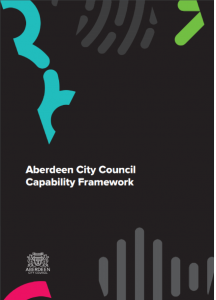
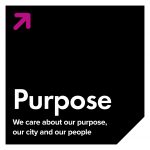
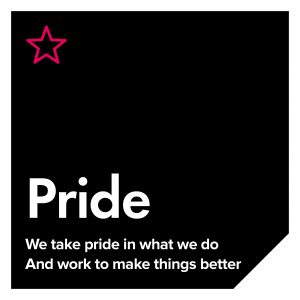
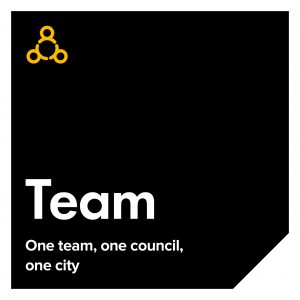
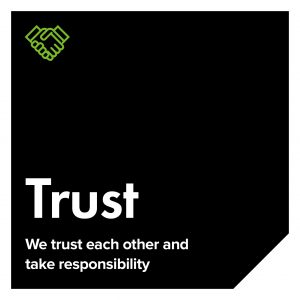
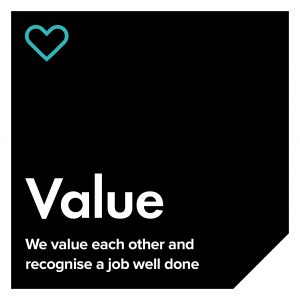
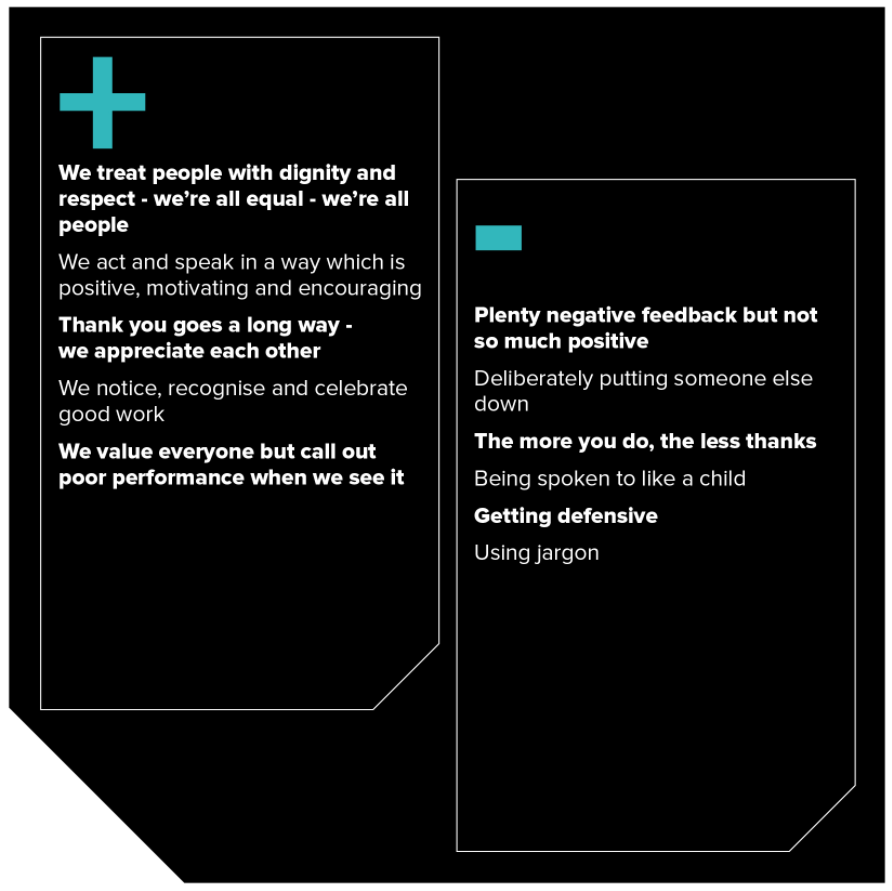
You must be logged in to post a comment.